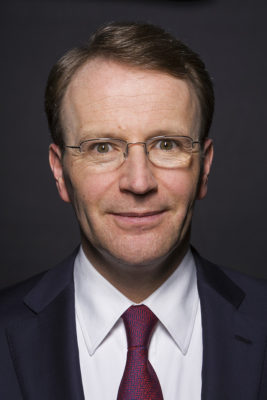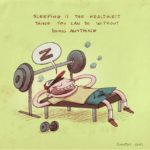 Nestlé has poached the head of Germany’s Fresenius healthcare group to become chief executive as the world’s largest food and drinks group drives further into nutrition and wellness. Ulf Mark Schneider, who will replace Paul Bulcke, is the first outside appointment to the helm of the 150-year old Swiss group since 1922. Nestlé has traditionally appointed its chief executive from candidates groomed from its top management ranks. The appointment of Mr Schneider — who will take over from Mr Bulcke next January — is a blow for long serving insiders tipped as possible candidates. They included Laurent Freixe, head of Nestlé’s US operations, and Chris Johnson, an American responsible for corporate services. Swiss media had also tipped Wan Ling Martello, head of AOA operations, as a possible successor.
Nestlé has poached the head of Germany’s Fresenius healthcare group to become chief executive as the world’s largest food and drinks group drives further into nutrition and wellness. Ulf Mark Schneider, who will replace Paul Bulcke, is the first outside appointment to the helm of the 150-year old Swiss group since 1922. Nestlé has traditionally appointed its chief executive from candidates groomed from its top management ranks. The appointment of Mr Schneider — who will take over from Mr Bulcke next January — is a blow for long serving insiders tipped as possible candidates. They included Laurent Freixe, head of Nestlé’s US operations, and Chris Johnson, an American responsible for corporate services. Swiss media had also tipped Wan Ling Martello, head of AOA operations, as a possible successor.
Mr Bulcke, the Belgian who has been chief executive for more than eight years, is expected become Nestlé’s chairman early next year. Mr Bulcke’s move had long been anticipated but the timing of Monday’s announcement came earlier than expected. Mr Schneider, 50, who has German and US citizenship, is credited by analysts with building Fresenius into a global healthcare company. The decision to hand the reins to Schneider supports Nestle’s goal to move beyond its roots and redefine itself as a scientifically-driven nutrition and health company. Over the past five years, as packaged-food makers have been criticized for contributing to a growing obesity crisis, Nestle has invested heavily in its health-science subsidiary, which seeks to commercialize discoveries made by its research arm in areas like metabolic health and Alzheimer’s disease.
The succession chain at the Swiss company was prompted by the planned retirement next year of Peter Brabeck-Letmathe as chairman of the board, when the 71-year-old chairman hits mandatory retirement age next year. Mr Brabeck-Letmathe had first initiated the push into wellness and health when he was Nestlé’s chief executive, aiming to secure future growth to counteract the effects of changing consumer demand on the Swiss group’s traditional food, drinks and confectionery products.
The last outsider appointed to head Nestlé was banking expert Louis Dapples in 1922, who was brought into streamline the company when a collapse in demand for powdered milk after the first world war plunged the group into crisis. Alongside the senior management shake-up, Nestlé said it would now fully integrate its health science and skin care units into the wider organisation, with both reporting directly to the chief executive from next year. Mr Schneider described Nestlé as a “truly iconic” global company.
Last year, Nestlé reported sales of CHF88.8bn and net profits of CHF9.1bn. But organic sales growth of 4.2 per cent fell short of its target for a third consecutive year as it battled against spluttering economies, tumbling prices and a health scare in India that hit sales of its Maggi noodles.



































